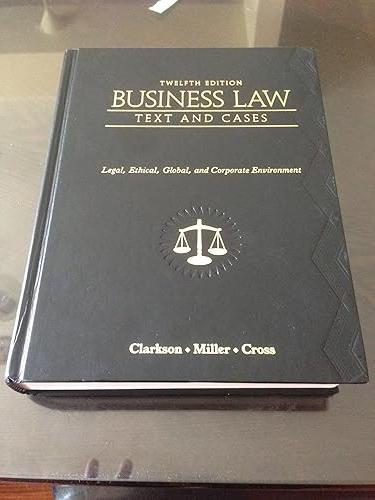The plaintiff [Christine Parent] leased an automobile from Amity Autoworld, Ltd. (hereafter Amity) [in Amityville, New York]
Question:
The plaintiff [Christine Parent] leased an automobile from Amity Autoworld, Ltd. (hereafter “Amity”) [in Amityville, New York] in January 2002.
Amity sold all its Toyota automobile franchise assets * * * to respondent J S Autoworld, Ltd. (hereafter “Atlantic”) pursuant to agreement in May 2002. * * * The alleged payments for the Amity dealership were made * * * directly to John Staluppi, Jr.
The plaintiff made a written claim for money damages to Amity on June 11, 2002.
The plaintiff commenced a small claims action [in a New York state court] against Amity via complaint dated March 9, 2005 and obtained a $2,643 * * * award.
The Suffolk County Sheriff returned the plaintiff’s execution against Amity as unsatisfi ed on July 12, 2006, advising that the Toyota dealership is now owned by Atlantic.
* * * *
Amity’s principal stockholder
[was] John Staluppi, Jr., who is the son of Atlantic’s principal stockholder John Staluppi, Sr. John Staluppi, Jr. is listed with the N.Y.
State Division of Corporation database as the “chairman, chief executive offi cer, executive offi cer and agent for process of Amity Autoworld, Ltd.”
* * * *
* * * Even in the absence of fraud, it [is] a violation of a duty on the part of the directors of a corporation to divest itself of all its property without affording a reasonable opportunity to its creditors to present and enforce their claims before the transfer becomes effective. [Emphasis added.]
The assets of a corporation constitute a * * * fund for the payment of its debts. After the return of an unsatisfi ed execution against the defunct corporation, a creditor may maintain an action against a shareholder to reach assets received by him. Directors incur derivative personal liability when they undertake to divest a corporation of all its property and in reality dissolve it without undertaking the proceedings for voluntary dissolution.
[Emphasis added.]
* * * [Section] 1007 of the [New York] Business Corporation Law
* * * provides:
* * * *
[Section] 1007. Notice to creditors;
fi ling or barring claims
(a) At any time after dissolution, the corporation may give a notice requiring all creditors and claimants
* * * to present their claims in writing and in detail at a specifi ed place and by a specifi ed day, which shall not be less than six months after the fi rst publication of such notice. Such notice shall be published at least once a week for two successive weeks in a newspaper of general circulation in the county in which the offi ce of the corporation was located * * * .
The Court notes that the use of the language “may give notice” to creditors in [Section] 1007 is permissive in nature. As such, * * * New York law allows for a corporation to informally dissolve by transferring all its assets without giving notice to creditors. However, * * * the cost of an informal dissolution is that directors cannot shield themselves against corporate creditor liability. Directors who undertake to divest a corporation of all its property without taking the proceedings for a voluntary dissolution do so at their peril.
In the matter presented, it is undisputed that Amity was informally liquidated and dissolved without notice to creditors and that John Staluppi, Jr. received in excess of $4,000,000 personally. * * *
Accordingly, the Court authorizes the amendment of the plaintiff’s complaint to include John Staluppi, Jr. as a * * * defendant and directs the Clerk of the Court to * * *
schedule a trial of the matter.
Questions:-
1. A corporation may do business under a variety of names. How strictly should the law require a judgment to be issued against a corporation in its “true” name?
2. Could a corporation’s former directors or shareholders, or its successors, avoid liability following its informal dissolution by claiming that they did all they felt was necessary to protect its creditors? Why or why not?
Step by Step Answer:

Business Law Text And Cases Legal Ethical Global And Corporate Environment
ISBN: 9780538470827
12th Edition
Authors: Kenneth W. Clarkson, Roger LeRoy Miller, Frank B. Cross





